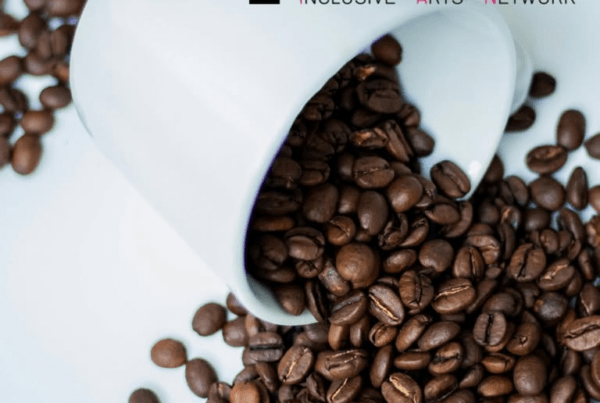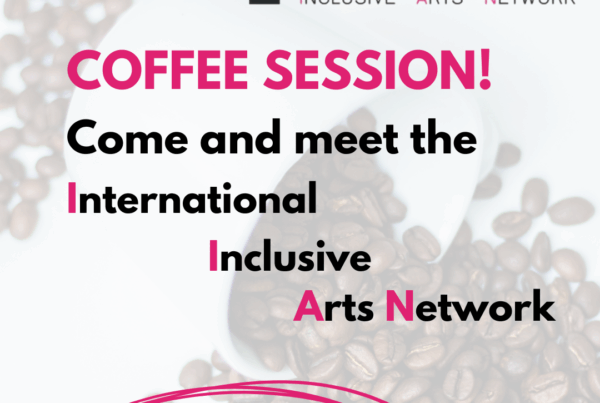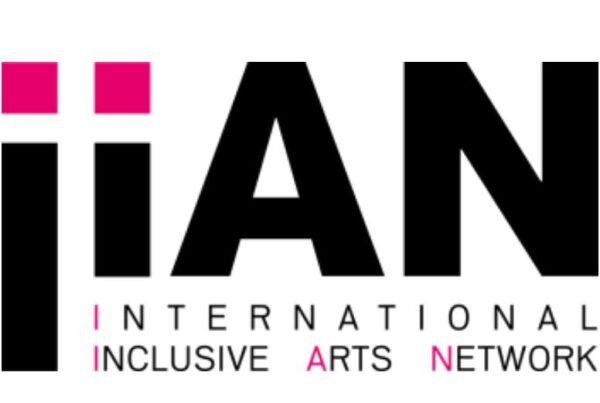First of all IIAN would like to thank the organisers of On The Edge for putting on a great inclusive festival. All venues were accessible, there was information in different accessible formats, we had sign language interprets performances, audio described performances and a truly inclusive young audience watching the shows.
IIAN had a presence across the 10 days and had lots of opportunities to meet, discuss and think about how ASSITEJ can continue to promote and ensure that festivals and events going forward can continue to be inclusive and accessible and build upon the great work at On The Edge.
During our time in Birmingham we delivered a series of talks, workshops and activities. each we’re well attended and each allowed us and the delegates a chance to learn something new. Our activities included:
- Pop-Up: From the Edge On to the Centre, an opportunity to share time on a one-to-one basis with a disabled artist.
- Nuts and Bolts a training session by a disabled practitioner exploring making arts spaces more accessible to all.
- Harnessing Creativity a workshop with Next Generation participants
- A Square World scratch performance by Daryl Beeton
- Play-writing a panel discussion from Theatre-in-Education to the present day
And it wasn’t just IIAN that were flying the flag for inclusion, there was also:
- Speech Bubbles A practical workshop led by Adam Annand that introduces participants to ‘Speech Bubbles’, an theatre intervention that supports children’s communication development.
- Social Drama Lecture by Dr. Carmel O’Sullivan. offering an experiential approach to children and young people with Autism Spectrum Disorder.
- Inclusive Theatre Practice: From Margin to InclusionPanel Discussion Karian Schuitema and Tom Maguire
During our time there IIAN spoke with members to discuss ideas for an IIAN Declaration. A chance to create a bold mission statement about an inclusive future for ASSITEJ, that we can share with the EC and fellow members in Cape Town 2017.
here are just a few highlights and what people suggested:
The IIAN Declaration
- General Principles – What do we mean by the term inclusion
- We actively seek out the barriers that prevent people taking part and remove them
- Respect, celebrate and work with ‘difference’. We may not all be the same but we are all equal
- creating a common language around disability
- Equality – How can it be achieved?
- Imbed inclusion within ASSITEJ Constitution
- Educate and develop an understanding that access is a matter of equality
- Ask the questions that should be asked… don’t be afraid. we need to start talking
- Awareness – How do we promote and encourage?
- Use more images of inclusive arts with ASSITEJ publications and marketing
- ASSITEJ International and National centres to have an ‘inclusion champion’ that reports back on inclusive activities
- Workshops around awareness or awareness information should be part of ‘introduction’ to new members who join ASSITEJ
- Accessibility – what needs to change?
- Al venues at future ASSITEJ events must be accessible
- When National centres bid to hold the meetings and congress they should demonstrate how they will make their festival accessible.
- Include access information and disabled artists in publicity
- Education – How do we engage young disabled people?
- Each national centre to make a connection with ‘special schools’ in their location
- Take shows and workshops into ‘special schools’ and create connections
- Promote positive disabled role models
- Employment and Training – How can we create more opportunities?
- Grassroots training – opening up our training to disabled people
- Ensure at least 1 place for a Disabled artist on the next generation programme
- Actively go and see Disabled art and seek to book it if it is good.
- Culture and collaboration – How can we better engage with Disabled artists and inclusive arts?
- ensure 1 inclusive show is programmed at each festival and event as part of a host requirement
- use existing networks more effectively
- Showcasing Disabled artists work that is accessible for all audiences
- Create an ASSITEJ Inclusive Festival – best inclusive work from around the world






